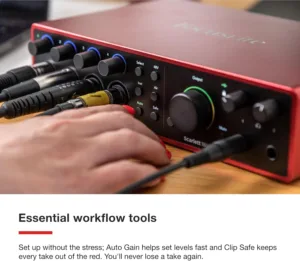Introduction
Playing music professionally is a great subject to talk about. Music occupies an important position in people's daily lives. It is important to say that music plays a vital role in our lives. Many young musicians put a lot of pressure on themselves to be professional musicians. People need to use language to communicate with others. Music is the spirit – language. It is hard to imagine what the world would be like without Music. However, some individuals choose to specialize in music. Besides, they choose a specific instrument to play.
Some steps You need to be professional
A combination of three points to be professional. They are musical skills, dedication, and business acumen.

Here are some steps to consider Playing Music Professionally:
1. Master your musical instrument:
It's crucial to hone your skills professionally, whether playing an instrument or singing. This involves formal training, private lessons, and self-study.
2. Learn music theories:
Understanding music theories can make a crucial difference. Mainly when you communicate with musicians, compose your Music, and improvise effectively. Expand your musical knowledge through many things:
- Listen to different genres and styles.
- Study the accomplished work of great musicians.
- Analyze their techniques.
In brief, this exposure will broaden your musical horizons. And also, it will inspire your creativity.
3. Gain performance experience:
If you want to gain performance experience, start performing in front of live audiences as much as possible. This could include open Mic Nights, local gigs, concerts, street performances, or busking. However, sharing your Music and performances can attract followers. Performing live helps you interact with audiences, develop stage presence, and refine your performance skills.
4. Network:
Playing Music Professionally requires building a solid professional network by connecting with other musicians, managers, agents, industry professionals, and potential collaborators. It might open doors for gigs and recording opportunities. Promote yourself by creating an online presence through social media, Music streaming platforms, and a professional website. Joining a music community is essential for you. Try to engage with other musicians. You can do that by participating in local jam sessions, music conferences, workshops, open mic nights, or joining bands. Hence, collaborating with other expert musicians can provide valuable experience and networking opportunities.
5. Produce and Record music:
Consider investing in recording equipment. Otherwise, try to find a studio to create high-quality recordings of your Music. Besides, learning how to mix and produce your Music can be valuable. Recording and releasing your Music can make a huge difference. Furthermore, consider recording your Music professionally to create a high-quality portfolio. Then this can be in the form of singles, EPs (Extended Plays), or full-length albums. Moreover, share your Music online through platforms like SoundCloud, Band Camp, or YouTube to reach a wider audience.
6. Understand the business side and Seek professional opportunities
Some of the fundamental aspects of the music industry involve some points:
- Familiarize yourself with contracts.
- Be aware of royalties and copyright laws.
- Be proactive in seeking out opportunities to display your talent.
Indeed, it is essential to seek legal and business advice when needed. Additionally, start earning money from your musical skills by looking for paid gigs, session work, and teaching opportunities. This can happen by applying for music festivals, talent shows, and competitions.
Additional Elements to Playing Music Professionally

There are also some additional elements. requires talent, dedication, and hard work. Here are some steps to help you:
1. Develop your musical skills:
Focus on mastering your instrument or voice. In addition, take lessons, practice regularly, and strive for continuous improvement. For Playing Music Professionally, you need to understand music theory, and developing your technical proficiency will strengthen your foundation as a musician.
2. Get formal education:
Pursue a music degree from a reputable institution. Getting formal education can provide access to experienced instructors and opportunities to collaborate with peers.
3. Practice and rehearse:
For Playing Music Professionally, be decisive in dedicating regular time to practice and rehearse your Music. Of course, it includes both technical exercises and playing or singing through songs or compositions. It is important to note that regular practice builds proficiency, confidence, and stage presence.
4. Promote yourself: use social media platforms, engage with your audience, and create a professional website online. Regularly share updates, music releases, and performance videos to build your fan base and attract potential opportunities.
5. Stay committed and consider further education:
Professional musicians may face rejection and setbacks. But perseverance is an essential key to progress. Thus, keep practicing, performing, and networking to advance yourself. Some musicians pursue formal education in music performance to gain skills and credentials.
Therefore, remember that each person's path to becoming a professional musician is unique. So, it is essential to be open to new opportunities.
Aspects you should consider
There are some aspects you should consider:
1. Specializing in a genre:
Having a diverse musical background is beneficial. Otherwise, focusing on a specific genre can help you carve out a niche. Also, it helps you to establish yourself as an expert in that style. This leads you to attract a dedicated fan base. In addition, it allows you to gain recognition within that particular genre's community.
2. Seeking professional guidance:
Try to work with a music mentor or hire a music coach who can provide valuable guidance. They help you refine your skills and offer insights about the music industry. Indeed, they assist with setting goals and navigating the challenges.
3. Develop your unique sound:
Strive to develop your distinctive sound. Attempt different musical elements, explore new techniques, and allow your creativity to flourish. This will make a lasting impression on listeners.
4. Build a solid online presence:
To build a solid online presence, consider leveraging other online platforms to showcase your Music. Additionally, upload your tracks to streaming platforms like Spotify, Apple Music, or SoundCloud. Also, engage with your audience through comments, messages, and live-streaming sessions. You may cultivate a loyal fan base.
5. Invest in the quality of recordings:
High-quality recordings can make a significant difference in how your music is received. Work with experienced producers and engineers to make sure your recordings are professional.

Conclusion of Playing Music Professionally
To sum up, the journey to Playing Music professionally and becoming a professional musician takes time. It also demands persistence. Thus, stay focused, continue to learn, and grow as an artist. In addition, be open to feedback and constructive criticism. Collaborations can bring new opportunities.
They expose you to different musical perspectives. Working with other musicians allows you to create unique and compelling Music.
Read More:Elevating Your Musical Craft: A Comprehensive Guide to Enhancing Your Playing
You can also listen to the article by pressing the audio button below:




